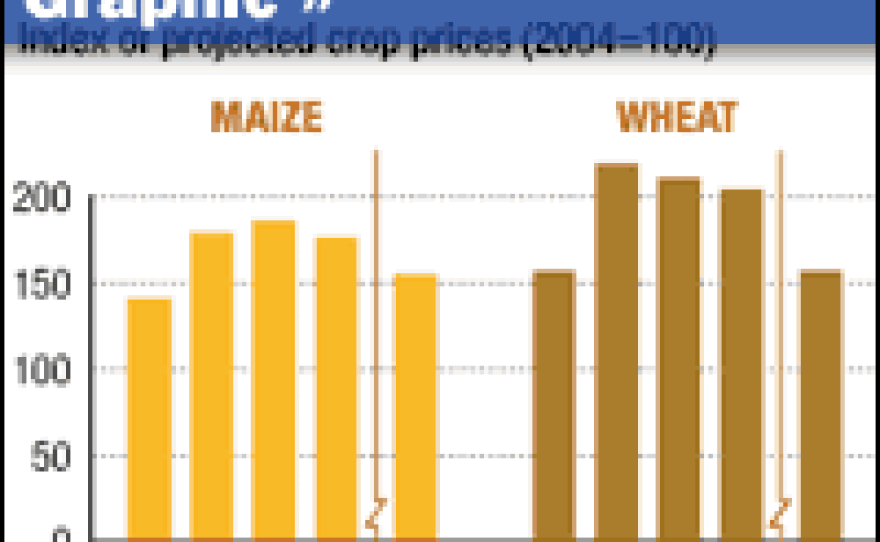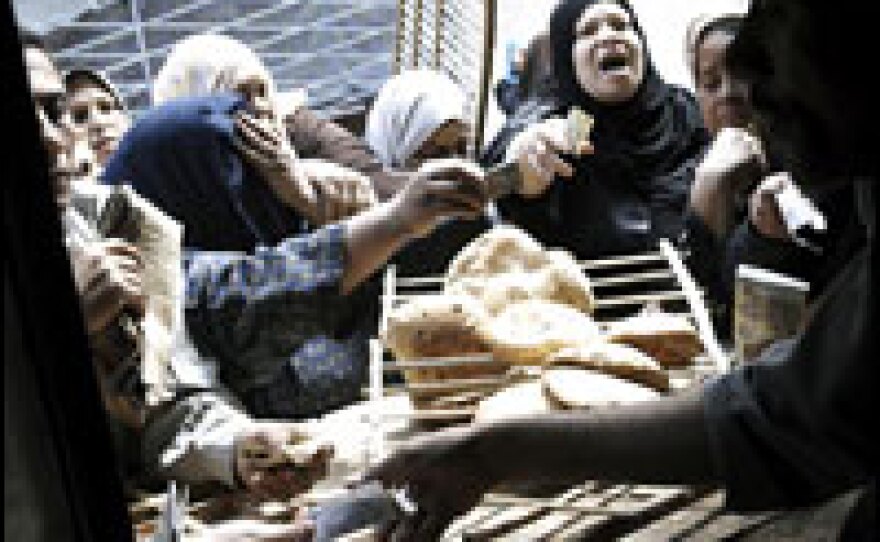
Once the breadbasket of the Roman Empire, Egypt in recent months has seen large and occasionally violent crowds lining up for hours in an attempt to buy cheap bread. Egyptians long have been known for their ability to shrug off adversity, but the current pressures are provoking strikes and demonstrations on a surprising scale.
The bread line has become emblematic of the financial woes facing ordinary Egyptians. It also provides a sense of just how poor the poor in Egypt are.
Struggling to Make Ends Meet
On a recent morning, the people crowding into a Cairo alley and trying their luck at snagging subsidized bread are not, for the most part, unemployed. In fact, many of them are civil servants who likely live near one of the numerous bakeries that sell loaves of bread for 40 piasters — less than eight cents each.
But eight-penny bread would be an outrageous extravagance in these times. Meager salaries mean these Egyptians stand in line — sometimes for hours — to buy state-subsidized five-piaster (less than one cent) bread.
Hosma, 62, is one of these people. She says she doesn't understand why there have been bread shortages recently — she can't read or write and doesn't keep up with the news as much as much as she'd like. But she knows that her earnings — less than a dollar a day — don't even come close to covering her basic needs.
"Everyone is upset with the high prices. I work for 150 pounds (approximately $30) a month, and everything is so expensive now," Hosma says. "People give me donations; that's how I get by. A few weeks ago, we couldn't find any bread, and there used to be fights. It's also bad quality bread."
Prices Rise Around the Region
For Egypt's poor, it's not just the indignity of the bread lines. The prices of cooking oil and rice are also up, and meat has long been a luxury item. The local press is filled with stories of how the economic crisis is affecting people: Civil servants are depending on bribes to make ends meet; young men are extorting "protection money" from small shops; one report even claims the crisis is causing Egyptians to lose their legendary sense of humor.
The pain is spreading around the region. In Tunisia and Morocco, where dissent is not tolerated, police have been deployed recently to quell food protests. In oil-rich Saudi Arabia, boycott campaigns have sprung up to protest the soaring cost of staple foods. Poor people in Yemen are reportedly spending more than a quarter of their income on bread.
Food experts warn that prices are likely to stay high in the near term, and social unrest could turn into violence. In Egypt, Nile Delta textile workers rioted this month just as local elections were held.
Joel Beinin, a professor at the American University in Cairo, says many factors are at play. Some are particular to Egypt, such as corruption in the distribution of subsidized wheat. Others have international roots.
For instance, Egypt still imports a substantial amount of wheat from the United States.
As a result, the U.S. government policy to pay farmers price supports not to grow wheat — in order to raise the commodity's price — affects availability and price in Egypt. More recently, a large proportion of the grain grown in the United States is being redirected to biofuels — which also takes grain off the market and increases prices, Beinin says.
Unrest Spreads Among All Classes
Whatever the causes, the effects are painful. As of last month, inflation was running at 12 percent over the previous year — and the pain is being voiced on the streets. There were a reported 222 strikes or job actions in 2006; that figure soared to 580 last year, and not just in the industrial sector. Doctors, university professors and private-sector workers also are protesting. Beinin says that should have the government worried.
"This is the core of the educated, professional middle class, which has been the political class throughout the 20th century in Egypt and until now as well," Beinin says. "When these people consider job actions or collective protests of a significant magnitude, this is potentially big trouble for the government."
The government's response to the unrest has been to make modest adjustments. President Hosni Mubarak this month ordered tariffs to be lifted on certain imports, including rice and cooking oil, and a commission is considering boosting the minimum wage for the first time in nearly a quarter century. Critics say such measures will do little to reverse the fundamental pressures driving up food prices — and anxiety levels — in the Middle East.
Copyright 2022 NPR. To see more, visit https://www.npr.org. 9(MDAzMjM2NDYzMDEyMzc1Njk5NjAxNzY3OQ001))







